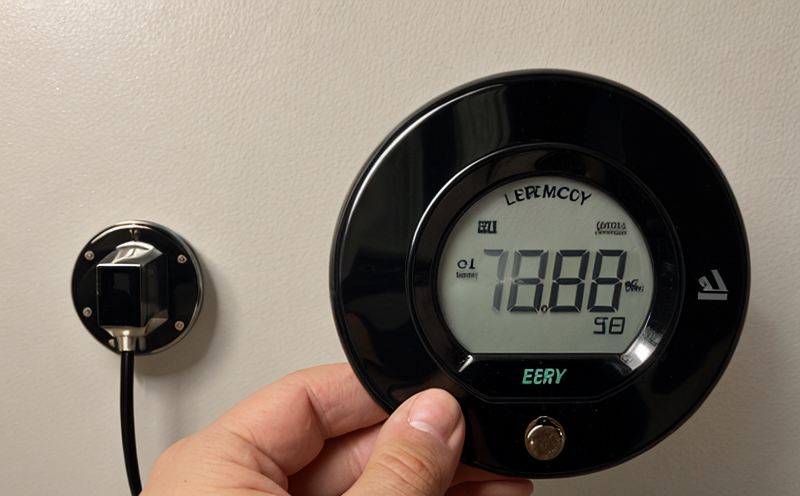DIN EN 15232 Building Automation Energy Efficiency Testing
The DIN EN 15232 standard is a comprehensive framework designed to assess energy efficiency in building automation systems. This standard specifically targets the evaluation of energy consumption and performance of building control systems, focusing on enhancing the overall energy efficiency of buildings.
Building automation systems (BAS) are integral components that monitor and manage various environmental conditions within a building, including temperature, lighting, and ventilation. The primary goal is to ensure these systems operate efficiently while maintaining comfort levels for occupants. DIN EN 15232 addresses the energy performance of such systems by providing clear methodologies for testing and analysis.
The standard covers a broad range of parameters that are critical in evaluating the energy efficiency of BAS. These include:
- Energy consumption
- Occupant comfort levels
- System response times to changes in environmental conditions
- Optimization strategies employed by the system
- Integration and interoperability with other building systems
- Data logging and reporting capabilities
The testing procedures outlined in DIN EN 15232 are designed to be comprehensive, ensuring that all relevant aspects of a BAS's energy performance are evaluated. The standard emphasizes the importance of using realistic test scenarios that reflect real-world conditions. This approach ensures that the results obtained from these tests are meaningful and can be used effectively for decision-making processes related to building design and operation.
One of the key features of DIN EN 15232 is its focus on continuous improvement. The standard provides guidance on how to monitor and evaluate the performance of a BAS over time, allowing for adjustments and optimizations as needed. This ongoing evaluation process helps ensure that the system remains efficient and effective throughout its lifecycle.
The benefits of adhering to DIN EN 15232 are numerous. Firstly, it ensures compliance with international standards, which is crucial for regulatory purposes in many countries. Secondly, it provides a robust framework for evaluating energy efficiency, leading to more sustainable building practices. Thirdly, the standard promotes innovation by encouraging the development of new technologies and methods that enhance energy performance.
Finally, DIN EN 15232 supports continuous improvement through regular audits and updates. This ensures that the systems remain up-to-date with the latest advancements in technology and best practices for energy efficiency. By doing so, it fosters a culture of sustainability within the industry, promoting long-term benefits for both buildings and their occupants.
Eurolab Advantages
At Eurolab, we pride ourselves on offering exceptional testing services that adhere strictly to DIN EN 15232 standards. Our team of experts ensures that every test is conducted with precision and accuracy, providing clients with reliable results.
We offer a range of additional benefits that make us the ideal partner for DIN EN 15232 testing:
- Comprehensive understanding of international standards
- State-of-the-art equipment and facilities
- Dedicated project management teams
- Experienced and certified personnel
- Timely and transparent communication throughout the process
- Accurate and detailed reporting
- Support for continuous improvement through regular audits and updates
Our commitment to excellence ensures that clients receive the highest quality service, enabling them to make informed decisions about their building automation systems.
Use Cases and Application Examples
DIN EN 15232 is applicable in various scenarios where energy efficiency in building automation systems needs evaluation. Here are some real-world use cases:
- New Construction Projects: Evaluating the initial design of a BAS to ensure it meets energy efficiency targets.
- Retrofitting Existing Buildings: Assessing the impact of installing new or updated BAS on overall building performance and energy consumption.
- Data Center Operations: Monitoring and optimizing energy usage in data centers to reduce costs and environmental impact.
- Hospitality Industry: Ensuring guest comfort while minimizing energy waste through efficient HVAC systems and lighting controls.
- Offices & Commercial Spaces: Implementing smart building solutions that enhance occupant comfort and reduce operational costs.
In each of these cases, DIN EN 15232 provides a structured approach to testing, ensuring that all relevant factors are considered. This allows for informed decision-making processes that lead to more sustainable and efficient buildings.





